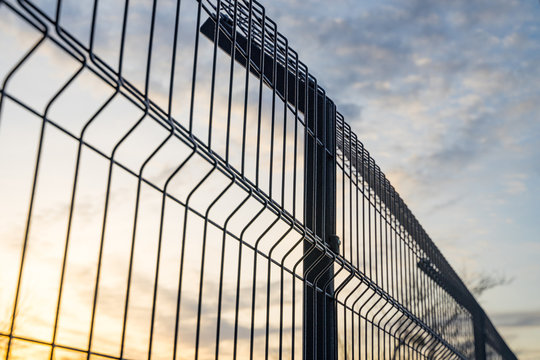
Installing an industrial fence on your property is a significant decision that requires careful consideration. Industrial fences serve multiple purposes: security, privacy, and boundary delineation. They are designed to withstand heavy use, provide robust protection, and enhance the overall appearance of your property. Before embarking on an industrial fence installation, evaluating certain factors is crucial to ensure you make the right choices. Let’s discuss five key considerations to keep in mind before installing an industrial fence.
Security Requirements:
One of the primary reasons for installing industrial fencing in sydney is to enhance security. Assess the level of security you need for your property. Are you looking to deter trespassers, prevent theft, or protect valuable assets? Consider the height, materials, and additional security features such as barbed wire, anti-climbing measures, or security gates. Consult with security professionals or fencing experts to determine the most suitable options based on your specific security requirements.
Material Selection:
Industrial fences are available in various materials, each with advantages and considerations. The choice of material depends on factors such as durability, maintenance, aesthetics, and budget. Common materials for industrial fencing include steel, aluminum, chain link, and vinyl. Steel offers exceptional strength and durability but may require periodic maintenance to prevent rust. Aluminum is lightweight, resistant to corrosion, and requires minimal maintenance. Chain link fences provide cost-effective security, while vinyl fences balance durability and aesthetics. Evaluate the pros and cons of each material before making a decision.
Local Regulations and Permits:
Before installing an industrial fence, familiarise yourself with local regulations and obtain any necessary permits. Contact your local municipality or relevant authorities to inquire about zoning restrictions, setback requirements, height limitations, and any specific regulations regarding industrial fencing. Compliance with local regulations ensures a smooth installation process and helps avoid potential legal issues in the future.
Environmental Factors:
Consider the environmental factors that may impact your industrial fence installation. Assess the terrain, soil conditions, and weather patterns of your property. If you live in an area prone to strong winds, you may need a fence that can withstand high wind loads. Similarly, the installation may require special considerations if you have uneven terrain. Additionally, if your property is located near coastal areas, you must select materials resistant to saltwater corrosion. Understanding these environmental factors will help you choose a fence that can withstand the challenges of your specific location.
Long-Term Maintenance:
Like any other structure, industrial fences require regular maintenance to ensure longevity and functionality. Consider the maintenance requirements of different fence materials before making your decision. Some materials may require occasional cleaning, painting, or repairs. Evaluate the long-term costs associated with maintenance and factor them into your budget. Additionally, inquire about warranties offered by the fence manufacturer or contractor to provide added protection and peace of mind.
Conclusion:
Installing an industrial fence is a significant investment for your property, and carefully considering various factors is crucial to ensure a successful outcome. Assess your security needs, select the appropriate materials, understand local regulations, consider environmental factors, and evaluate long-term maintenance requirements. By addressing these considerations before installation, you can make an informed decision that aligns with your goals, enhances security, and adds value to your property. Consult with fencing experts to guide you and ensure a professional installation meets your requirements.






